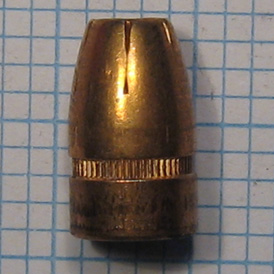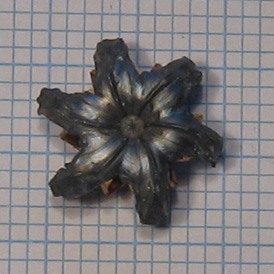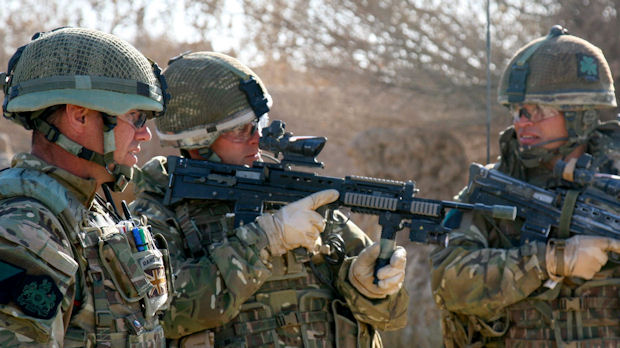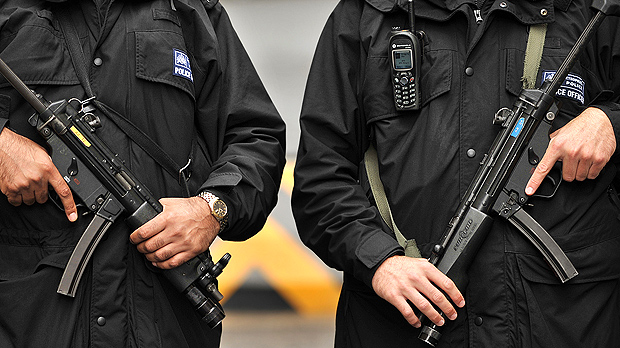Hollow point bullets to be standard issue for Met Police
The Metropolitan’s Police firearms chief tells Simon Israel that all of their armed officers will be issued the controversial bullet as standard, arguing it poses less of a risk to the public.

A special type of bullet used in the Stockwell shooting of Jean Charles de Menezes, who was mistaken for a suicide bomber, is to be issued as the new standard ammunition issued to all 3,000 firearms officers in the Metropolitan Police.
It follows an £80,000, 12-week-long testing programme of the 9mm hollow point bullet. The new bullet will replace the current 9mm soft point variation.
The ammunition will now be used by officers armed with Glock pistols and Heckler and Koch rifles.
The Metropolitan Police says its tests show the bullet is less likely to over-penetrate and harm others when used in crowded or confined places.
That such bullets were ever previously used only emerged during the health and safety case trial of the Metropolitan Police for the shooting of the Brazilian electrician Jean Charles de Menezes on 22 July 2005, on a train at Stockwell station.
It was revealed the decision to use this type of ammunition was made to help police seeking the failed 21 July suicide bombers, who were still at large the following day.
During that case an expert described how the bullet flattens on impact and immediately incapacitates the target, making it more effective in dealing with a suicide bomber.
Talks have begun with other police forces to make this type of bullet standard issue in time for the 2012 Olympics.
This news emerged this morning at a Scotland Yard briefing I attended.
The head of the Met’s Firearms Unit, Commander Jerry Savill, told me that all police forces in the UK will be shown their research is based on experiments in which various type of bullets were fired into a solid block of gelatine.
Why the controversy?
Hollow point bullets are generally regarded as being very effective "man-stoppers" by the way they burst within the target, as opposed to other bullets which may pass straight through the same target.
However the use of hollow points within the military is banned by the Hague Protocol, on the grounds that this expansive force is inhumane to opposing soldiers.
That same lethality of hollow point bullets however makes them very suitable to hunting and pest control, where one shot will kill the target and avoid prolonged suffering of an animal that has been wounded but dies later.

I was shown films of these tests, the first with a soft point bullet which is to be phased out, and the second with the hollow point.
The first went straight through the block but the hollow point stopped about half way in.
The Met won’t release this footage on the grounds of sensitivity.
But Commander Savill said the hollow point has proven to be more effective at stopping someone instantly and so poses less of a risk to bystanders.
This type of bullet is standard issue in France and to the FBI. Made by a US company, it has at times been referred to as a “dum-dum” bullet, but UK police reject that term, saying it is slang for ammunition which has been deliberately altered by criminals to cause maximum injury and suffering.
Commander Savill said the bullet is not proscribed in law, and they sought advice from a human rights QC before taking the decision to issue it as standard.
He told me he was confident that it will be standard among all UK police forces by next summer.
Related stories
-

Arizona shooting: Giffords ‘100 per cent certain to survive’
10 January 2011
-

Dodging bullets from a Taliban marksman
04 March 2011
-

Christmas ‘terror plot’ targeted London landmarks
27 December 2010
-
Latest news
-
‘Russian aggressions have never pushed Georgia to deviate from its own path’, says Georgian President5m

-
Why is Georgia’s ruling party so intent on adopting ‘foreign influence’ bill?5m

-
Trump’s lawyers try to paint Michael Cohen as liar out for revenge at trial3m

-
England’s schools told not teach gender identity2m

-
Slovakia PM shooting: Suspect charged with attempted murder3m

-







